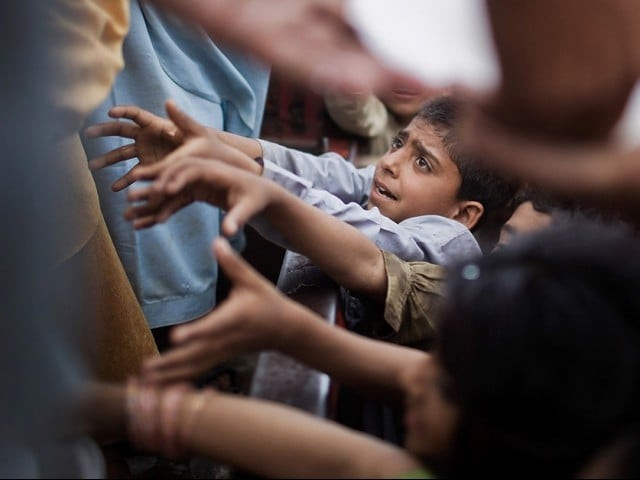Fiscal, labour, social reforms can stop Pakistan sliding back into poverty trap after 20 years of progress, say expert
Pakistan would soon move to a path of poverty reduction and improvement in other socio-economic indices, Dar says. PHOTO: REUTERS
KARACHI:
Pakistan’s progress in poverty reduction has stalled after nearly two decades of steady gains, experts warned at the Fifth Annual International Conference of the School of Economics and Social Sciences (SESS), Institute of Business Administration (IBA), held on November 13-14, 2025, under the theme “A New Global Order, Yet Again.”
During a panel titled “Pakistan at a Crossroads: Poverty, Growth, and the Global Shift,” economists, policymakers, and development experts discussed the World Bank’s first comprehensive Poverty Assessment Report in twenty years. The report shows that while Pakistan made remarkable progress between 2001 and 2015 – reducing poverty from 64.3% to 21.9% – those gains have stalled or reversed since 2018-19 due to overlapping economic, political, and environmental shocks.
The study attributes earlier success mainly to a shift from agricultural to non-agricultural income, driven by labour migration into services and non-manufacturing sectors. Nearly 57% of poverty reduction came from non-agricultural labour income. But this transition has now reached its limits. Most new jobs are low-wage and low-productivity, concentrated in informal retail and services that fail to lift households from vulnerability.
Remittances, once a crucial poverty buffer, are also losing impact. Though still vital for foreign exchange, their benefits are uneven. The poorest 20% of households rarely send workers abroad and rely on domestic migration to cities. Adjusted for inflation, real remittances are declining, reducing poor families’ resilience to shocks. Experts noted that Pakistan’s labour market remains highly informalabout 85% of employment offers no social protection. Nearly half the population is outside the labour force, while female participation remains stagnant at 25%, largely in low-paid farm work. Even more worrying, 37% of youth are neither in education, employment, nor training, the highest NEET rate in South Asia.
Panellists warned that such fragility leaves millions hovering just above the poverty line. “A single shock, whether inflation, illness, or job loss, can push entire families back into poverty,” said Maria Qazi of the World Bank. Public service access is also weak: only 4.3% of households have daily access to piped water, revealing deep structural flaws in human development.
Fiscal and policy challenges dominated much of the debate. Wasif Ali Memon, Chairman of the Sindh Revenue Board, called for progressive taxation and decentralised revenue collection. “Pakistan’s fiscal structure depends too heavily on indirect taxes and an informal economy that makes up nearly 80% of GDP,” he said. “We must broaden the tax base, raise the tax-to-GDP ratio, and strengthen institutional capacity to finance poverty reduction sustainably.”
Christina Wieser, Senior Economist at the World Bank, urged policymakers to go beyond short-term cash transfer programmes like the Benazir Income Support Programme (BISP). “BISP cushions the poorest households,” she said, “but sustainable poverty reduction needs jobs, education, and gender-inclusive economic opportunities.” Economist and journalist Khurrum Husain noted that Pakistan’s growth has become disconnected from poverty outcomes. “We saw poverty stall even during growth years,” he said. “Our growth is consumption-driven and informalit doesn’t create sustainable livelihoods. The rich pay less and gain more.” Without redistributive reform, he warned, inequality will widen further.
Economist Asad Syed described Pakistan’s economic model as “dependent on geopolitical rents rather than productive investment.” He said the country’s investment rate, barely 2% of GDP, is far below regional peers. “We must move from speculative profits to a productive, equitable model of growth,” he urged, warning that dependence on external rents and neoliberal policies deepens inequality. The conference’s concluding session, “What is New in the New World Order?” shifted focus to global dynamics. Neelum Nigar of the Ministry of Finance said the world is now “multipolar, fragmented, and interdependent,” and urged developing nations to reassess their place in global governance. “The question is not just who participates,” she said, “but who benefits.”



